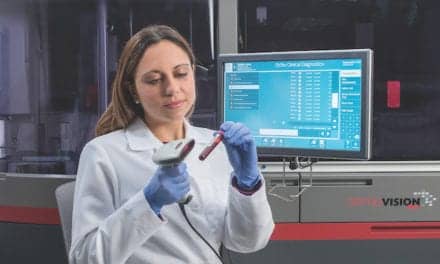Summary: Thermo Fisher Scientific introduced a new urine-based assay for kidney transplant recipients, offering a non-invasive, rapid, and potentially more cost-effective method for monitoring transplant health.
Takeaways:
- The urine test for CXCL10 allows for non-invasive monitoring of kidney transplant health, which could reduce the need for invasive biopsies and aggressive immunosuppression.
- Results from the test can be obtained within 24 hours from any local clinic, enhancing the convenience and accessibility for patients.
- This testing service aims to supplement or replace less specific and sensitive current monitoring methods, potentially reducing the physical and financial burdens associated with post-transplant care.
For organ transplant recipients, life post-transplant involves a delicate balance between invasive monitoring and immunosuppression to reduce the risk of rejection, both of which may carry complications. A simple, urine-based assay from Thermo Fisher that detects the CXCL10 chemokine may make care more convenient and less invasive for the nearly 250,000 Americans living with a kidney transplant.
Thermo Fisher’s Kidney Transplant Urine Test
Thermo Fisher Scientific One Lambda Laboratories, a CLIA facility in Fishers, Ind., has introduced a new CXCL10 testing service, which allows for non-invasive urine sample collection and testing, with results available in as little as 24 hours. Multiple studies have shown that elevated urinary CXCL10 levels are associated with inflammation and early kidney transplant rejection, as outlined in a recent article in Current Opinion in Organ Transplantation.
“Current methods of post-transplant monitoring can represent a significant financial and physical burden for many transplant patients. In keeping with our commitment to health equity, we believe this lower-cost, non-invasive testing option can expand access to care and improve patient adherence, since the sample can be collected at any local clinic,” says Chris McCloskey, director, transplant services, Thermo Fisher Scientific.
Eliminating Unnecessary Biopsies
Thermo Fisher’s CXCL10 testing service may supplement current standards of care that may lack specificity or sensitivity, which may lead to unnecessary and invasive biopsies, or produce results too late to influence care, making treating rejection more difficult. This can lead to an aggressive immunosuppression regime, increasing patient morbidity and mortality risks.
“We’ve heard directly from patients that invasive biopsies and aggressive immunosuppression to prevent rejection can be incredibly detrimental to their physical and mental health. That’s why we’re proud to be at the forefront of industry, leading the way with new non-invasive tests designed to improve patient outcomes and quality of life throughout the transplant journey,” says Tina Liedtky, president, Transplant Diagnostics, Thermo Fisher Scientific.
Further reading: Thermo Fisher Unveils Semi-Quantification Analysis for ICP-OES
One Lambda Laboratories
The Thermo Fisher One Lambda Laboratories CXCL10 assay was developed and validated by One Lambda Laboratories. This laboratory developed test (LDT) is used for clinical purposes by the CLIA-certified laboratory performing the test. This test has not been cleared or approved by the FDA as an in vitro diagnostic test.





